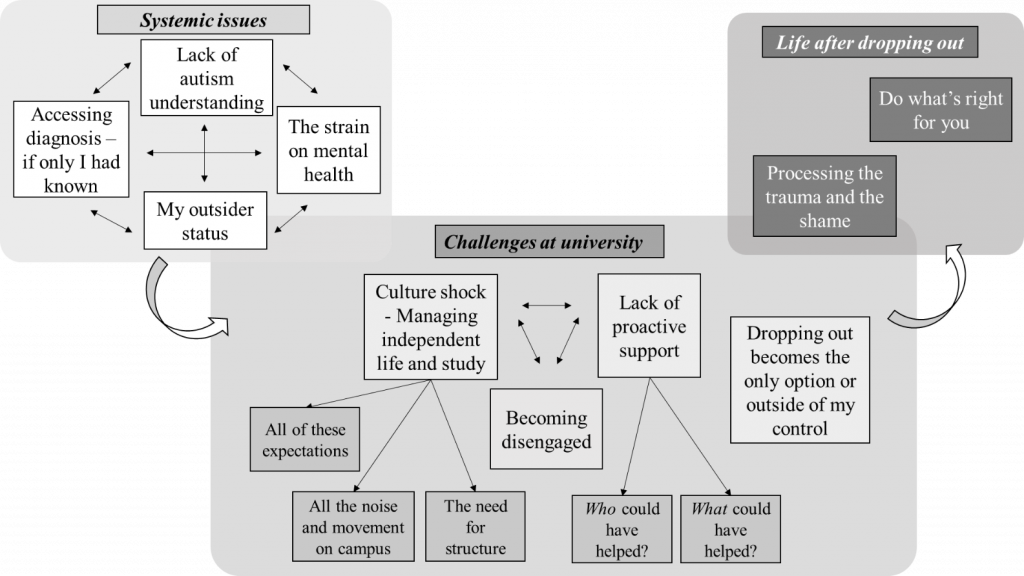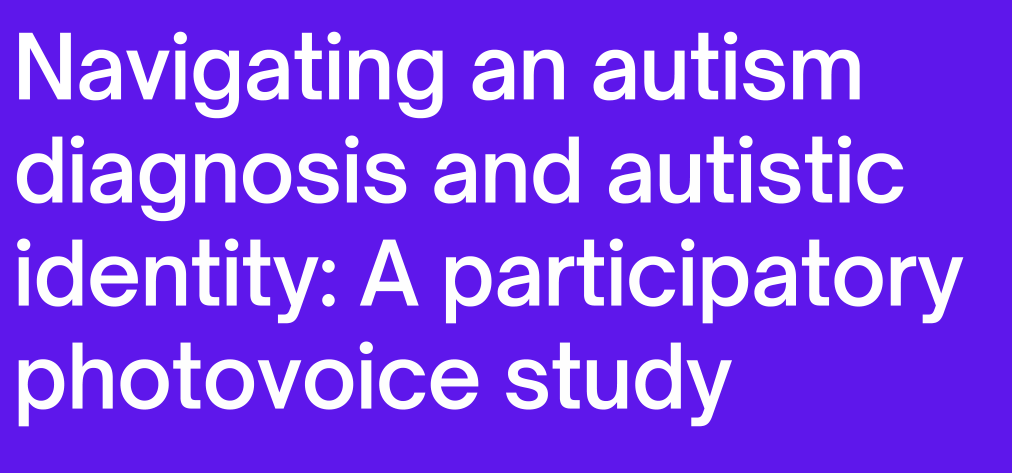News
New open-access research paper on Self-guided Mindfulness to alleviate anxiety in autistic adults
Anxiety in autism is an important target for psychological therapies because it is very common and because it significantly impacts upon quality of life and well-being. Growing evidence suggests that cognitive behaviour therapies and mindfulness-based therapies can help autistic individuals learn to manage feelings of anxiety but access to such therapies remains problematic. In the current pilot study, we examined whether existing online cognitive behaviour therapy and mindfulness-based therapy self-help tools can help reduce anxiety in autistic adults. Specifically, 35 autistic adults were asked to try either an existing online cognitive behaviour therapy (n = 16) or mindfulness-based therapy (n = 19) programme while a further 19 autistic adults served as a waitlist comparison group. A first important finding was that 23 of the 35 (66%) participants who tried the online tools completed them, suggesting that such tools are, in principle, acceptable to many autistic adults. In addition, adults in the cognitive behaviour therapy and mindfulness-based therapy conditions reported significant decreases in anxiety over 3 and to some extent also 6 months that were less apparent in the waitlist group of participants. On broader measures of mental health and well-being, the benefits of the online tools were less apparent. Overall, the results suggest that online self-help cognitive behaviour therapy and mindfulness-based therapy tools should be explored further as a means of providing cost-effective mental health support to at least those autistic individuals who can engage effectively with such online tools.
Researchers: Sebastian B Gaigg , Paul E Flaxman, Gracie McLaven, Ritika Shah, Dermot M Bowler, Brenda Meyer, Amanda Roestorf
, Paul E Flaxman, Gracie McLaven, Ritika Shah, Dermot M Bowler, Brenda Meyer, Amanda Roestorf , Corinna Haenschel, Jacqui Rodgers, Mikle South
, Corinna Haenschel, Jacqui Rodgers, Mikle South
First published: 08 April 2020
Open access article available here: http://hdl.handle.net/1893/31121
New paper on camouflaging, autistic identity and disclosure published
Eilidh Cage, along with collaborator Zoe Troxell-Whitman, has just published a new paper looking at the relationships between camouflaging, autistic identity and disclosure. In the study, published as a brief report in Autism in Adulthood, they found that higher autistic identity linked to more disclosure of being autistic, which in turn linked to fewer camouflaging behaviors. This study suggests that strong autistic identity and being openly autistic could reduce camouflaging, which we know has negative effects on mental health. However, to enable disclosure, these findings demonstrate the need for safe spaces where autistic people can explore their identity and be openly autistic, without fear of discrimination.
You should be able to access the paper through the University of Stirling website and clicking ‘request a copy’ or by emailing Eilidh Cage (eilidh.cage@stir.ac.uk).
ESRC Post-Doctoral Fellowship award
We are delighted to announce that Dr Monique Botha has been awarded a Post-Doctoral Fellowship from the ESRC, via a competition led by the Scottish Graduate School of Social Science. Monique will be mentored by Dr Eilidh Cage, and the Fellowship gives Monique the opportunity to write up PhD publications, examine new research ideas and develop Monique’s career. Monique’s PhD, at the University of Surrey, looked at autistic community connectedness as a buffer against the effects of minority stress, and you can read some of this excellent research here.
We look forward to welcoming Monique to Stirling in October!

New research on autistic people’s university experiences published
Dr Eilidh Cage, along with Jack Howes, has recently published a new paper looking at the experiences of autistic people who have dropped out of university. This research involved interviews with 14 autistic people, and Eilidh and Jack identified common themes from the participants’ experiences. These themes are shown in the picture below – encompassing a range of systemic, structural issues, as well as challenges within university life, and then life after dropping out.

This research has important implications for universities – who clearly could do more to support autistic students. Eilidh and Jack discuss some of their recommendations for universities in this video:
This research follows on from a larger scale survey looking at the factors that affect university completion for autistic people.
You can read the paper, published in the journal Autism, here: Dropping out and moving on: A qualitative study of autistic people’s experiences of university. If you have trouble accessing the paper, please contact Dr Eilidh Cage via email (eilidh.cage[at]stir.ac.uk).
Dr Eilidh Cage, Lecturer in Psychology
Eilidh’s research looks broadly at the experiences of autistic adults and adolescents, and the challenges related to navigating a predominantly non-autistic world. She is particularly interested in autism acceptance (from both self and others), mental health and wellbeing, autistic identity and diagnosis, camouflaging (or masking) and supporting autistic students at university. She is also passionate about improving practices within autism research itself.
New STAR team members
From left to right: Dr Eilidh Cage, Dr Amanda Roestorf and Dr Catherine Grainger
At the start of the new year, we look forward to an exciting 2020!
We welcome two autism researchers as new members of the Stirling Autism Research group.
Dr Eilidh Cage joins as Lecturer in Autism. Eilidh’s research interests include mental health and the experiences of autistic people.
Dr Amanda Roestorf joins as Post-Doctoral Research Assistant. Amanda’s research explores the ways in which remembering to do things in the future (Prospective Memory) affect everyday functioning and well-being across the lifespan.
Find out more about Eilidh and Amanda on our Meet The Team page.





